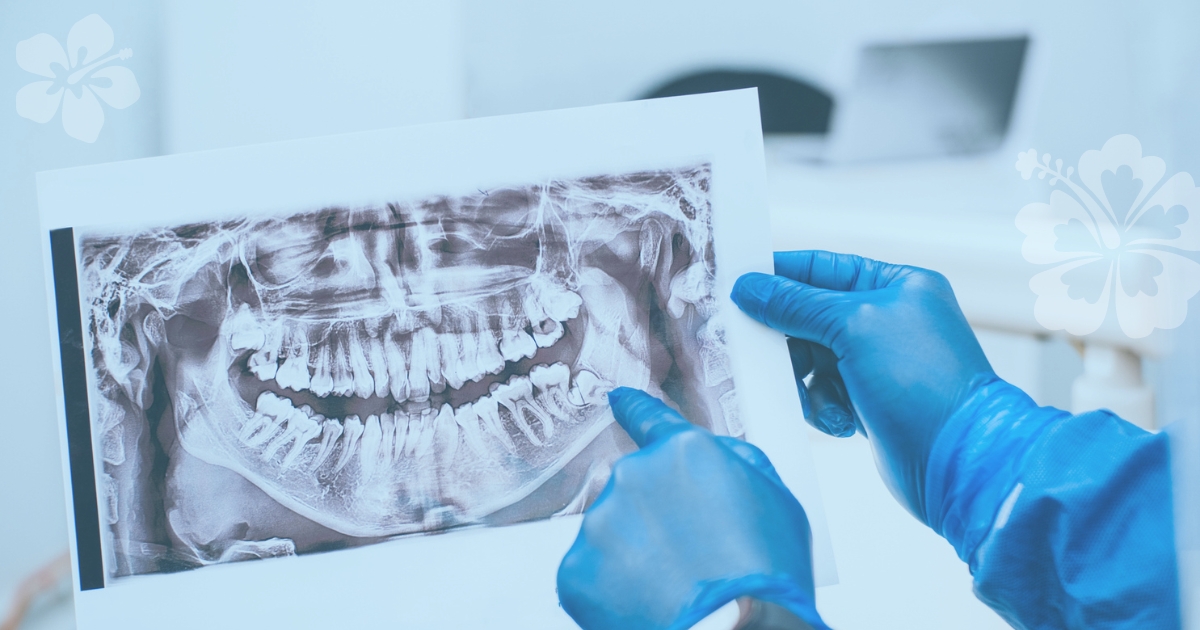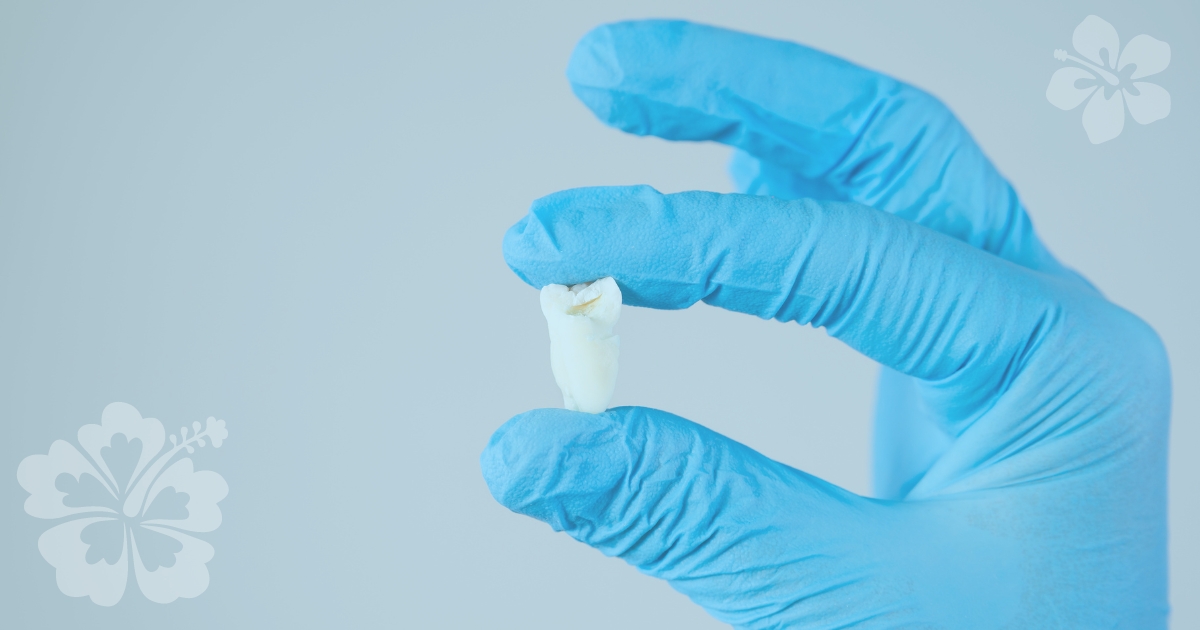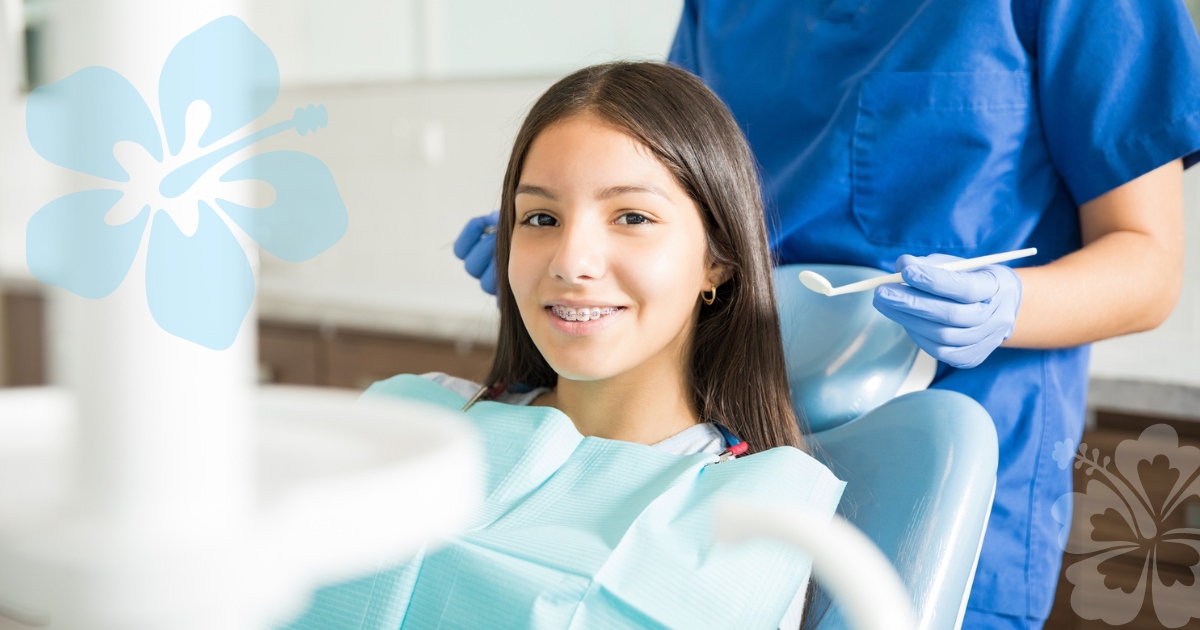Many people anxiously anticipate the impending eruption of their wisdom teeth and the long-term repercussions that will follow. Unfortunately, plenty of misinformation exists about wisdom teeth and how they may affect braces. Knowing the facts about wisdom teeth and braces and how the two may coincide with one another can help you be better prepared when heading to the orthodontist to address your or your child’s bite.
Wisdom Teeth: The Basics
You’ve certainly heard about wisdom teeth, but not everyone understands what these teeth do or why most people need to have them removed. Wisdom teeth are the third molars located at the back of the mouth and are typically the final teeth to erupt. Most people will have four wisdom teeth erupt, but this is not always the case, as some will develop less.
While wisdom teeth were once functional teeth at some point in human history, they are now considered vestigial. That is, with changes to modern diets and medicine, humans don’t typically need wisdom teeth. Many times, they can pose a problem by causing crowding and other issues, so they are removed.
Some of the common outcomes for patients with erupting wisdom teeth include:
- Impacted teeth when one or more erupt at an angle
- Some of the teeth remain under the gum and don’t erupt
- The gum flap covers the teeth
Common Questions About Wisdom Teeth

Now that you have a basic understanding of wisdom teeth, below are some of the most common questions about them and how they interact with braces.
At Robison Orthodontics, we believe the best age to get braces is between 10 and 14 years old. Wisdom teeth are the last teeth that erupt, and they typically don’t do so until a patient is between the ages of 17 and 25. It’s also worth mentioning that orthodontic treatment on younger adolescents takes less time since their mouths are more malleable, decreasing the risk of braces and wisdom teeth eruption overlapping.
Of course, wisdom teeth certainly can come in while someone is wearing braces. The good news is that this shouldn’t affect your braces. Wisdom teeth do not exert much force, so they generally won’t affect the rest of your teeth or damage the work your braces are doing.
If you have braces and think your wisdom teeth are coming in, you should consult with an orthodontist to ensure there won’t be any complications or issues.
You don’t have to have your wisdom teeth removed before getting braces, but in some cases, an orthodontist may recommend it. These instances include:
- Impacted teeth are trapping food.
- You’ve had multiple infections due to wisdom teeth.
- Decaying wisdom tooth or teeth
- The wisdom teeth cause pain.
- You’re dealing with a cyst near the wisdom teeth.

Typically, most people wait until before or after they have braces to remove their wisdom teeth, but that doesn’t always have to be the case. An oral surgeon can remove wisdom teeth even if the patient has braces on at the time. Different models of braces will have different concerns, so you should speak with an orthodontist before you schedule an appointment for surgery.
If your wisdom teeth come in without being impacted or erupting very close to your other teeth, you should be able to keep wearing your retainer without much hassle. Neither clear retainers nor traditional Hawley retainers will likely see much of an effect from wisdom teeth eruption in most cases. If you notice your retainer doesn’t seem to be fitting right, or your child tells you they are experiencing discomfort, it may be worthwhile to schedule a special trip to the orthodontist for an examination.
Dental professionals used to believe that wisdom teeth could negatively impact the orthodontic work that patients had done before eruption, but modern belief is that this isn’t necessarily the case. Some orthodontists and dentists are now less likely to suggest wisdom teeth removal if there aren’t any major problems like impacted teeth or infection. Your orthodontist may urge against extraction if they don’t see it as an issue.
The biggest contributor to teeth shifting after braces is forgetting to wear a retainer regularly. Retainers help to maintain the orthodontic work and prevent teeth from shifting in the mouth while they’re still growing.
Some dentists or orthodontists can handle wisdom teeth operations, though some may refer you to an oral surgeon in more extreme cases. You may be awake for the surgery, or the surgeon may suggest full sedation in more advanced situations.
Typically, the surgeon will begin by numbing the area around the wisdom teeth with a gel and then an injection. Once your mouth is numb, they will make a small incision to expose the tooth and remove it from your mouth. You may feel some pressure, but you shouldn’t be able to feel any pain. Your surgeon will then stitch up any wounds if need be to stop bleeding and begin the healing process.
If you need sedation, your surgeon will instruct you to take it slightly before the surgery or will administer the sedation through IV. You’ll feel yourself becoming groggy while the sedation kicks in. You likely won’t be able to remember much about the surgery even though you are still medically awake.
After the surgery, you’ll get instructions on what and how to eat and drink and how to manage the pain and swelling. Dentists will typically prescribe you some sort of medication to help with the pain. If you have braces and would like to get your wisdom teeth out, you’ll want to ask your orthodontist if there are any concerns you should be aware of after the procedure. You should ensure you take proper care of your braces while you recover.
Robison Orthodontics: Your Experienced and Friendly Orthodontists

At Robison Orthodontics, we realize how common it is to have questions about braces, wisdom teeth, and how they affect other aspects of your life. While we can give general advice with a blog post, coming in and meeting with our friendly team will help you get a more personalized answer to your questions regarding braces, wisdom teeth, or anything else that’s been concerning you.
Children should have their first meeting with an orthodontist when they turn seven, and you should prepare for your child to get life-changing orthodontic care.
Contact us today to schedule an appointment or learn more about our services.

Dr. Tyler Robison is an alum of Mesa’s Mountain View High School. He graduated from Brigham Young University before being accepted to the “Top Ten-nationally ranked” University of Louisville in Kentucky, where he earned his Doctorate in Dental Medicine and a Master’s Degree in Oral Biology. He graduated with honors in the top ten percent of his class. Dr. Robison continued at the University of the Pacific in San Francisco, where he received a second master’s degree in dental science and his orthodontic certification.


